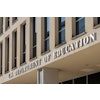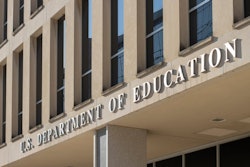
The bill, which passed both chambers of Congress along party lines, combines major tax changes with deep spending cuts that critics say will undermine higher education funding and student support programs.
"Over great public outcry, President Trump signed his signature legislation - a grave mistake that will have devastating repercussions for years to come," said Kristin McGuire, President and CEO of Young Invincibles. "By slashing access to health care, forcing millions out of coverage, and restricting access to essential programs like SNAP, this legislation will be deadly."
McGuire warned that the bill "deepens existing inequalities by limiting access to financial aid, making it even harder for young people to pursue a college education at a time when public trust in higher education is already eroding."
The reconciliation package includes several provisions that will directly impact higher education, including new limits on Grad PLUS and Parent PLUS loans that advocacy groups say will restrict access to graduate and professional education. The bill also raises taxes on large institutional endowments, though at lower rates than initially proposed.
However, higher education advocates succeeded in preventing some of the most damaging provisions from the original House bill, including proposals to eliminate subsidized loans and restrict Pell Grant eligibility.
Dr. Charles L. Welch, President and CEO of the American Association of State Colleges and Universities (AASCU), acknowledged the advocacy community's partial success while expressing concern about the bill's broader impact on state budgets.
"Never has the federal government divested itself of financial responsibility to such an extent, imperiling previously stretched state and local budgets as they seek to cover newly obligated burdens," Welch said. "Regional public universities understand that state investment in higher education is often the first victim of tightened budgets, a reality that many institutions will soon revisit."
The legislation includes significant cuts to Medicaid and other safety net programs that many students and families depend on. These reductions are expected to particularly impact low-income students and strain state higher education budgets.
The Education Trust issued one of the harshest criticisms of the bill, calling it the "Great American Heist" in a statement released as Trump prepared to sign the legislation on Independence Day.
"Today, on the very day our nation celebrates freedom and opportunity, President Trump signed into law a bill that does the exact opposite," the organization said. "The so-called 'One Big Beautiful Bill' is nothing short of the Great American Heist — a cruel, calculated effort to strip students and working families of education, healthcare, and economic mobility."
The final bill does include some provisions that higher education advocates supported, including a revised version of short-term Pell grants for workforce programs and changes to FAFSA calculations that benefit small business and farm families.
Additionally, proposed accountability measures for institutions were narrowed from the original House version, applying only to students who complete programs rather than all enrollees, and focusing penalties on federal lending rather than all Title IV eligibility.
Despite these improvements, advocacy groups said that the overall impact of the legislation will be harmful to students and institutions.
"Young adults have been told to chase the American Dream, but with their support systems, resources, and basic needs stripped away by Congress, that dream has become a cruel illusion," McGuire said. "Young people will not forget the brazen attempts to sacrifice young people's futures to serve the interests of billionaires."
The bill's passage with razor-thin margins in both chambers - requiring Vice President JD Vance to break a 50-50 tie in the Senate and passing the House by just four votes - reflects the controversial nature of the legislation even within Republican ranks.
Higher education associations indicated they will now focus their advocacy efforts on the annual appropriations process, hoping to mitigate some of the bill's negative impacts through funding decisions.
"AASCU urges Congress to reassert its constitutionally endowed authority over government expenditures, eliminating executive overreach and fully funding the programs, grants, and institutions that serve our nation's postsecondary students," Welch said.
The American Council on Education (ACE) and other higher education organizations had lobbied extensively against the most harmful provisions in the bill, achieving some success in preventing deeper cuts to student aid programs while failing to stop other damaging measures.









